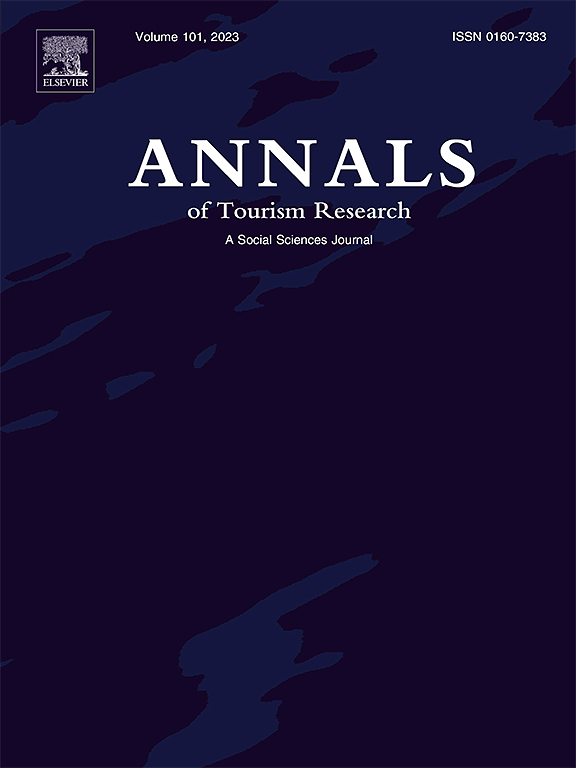Travel constraints on stigmatised LGBTQ+ Indians
IF 7.8
1区 管理学
Q1 HOSPITALITY, LEISURE, SPORT & TOURISM
引用次数: 0
Abstract
This study integrates travel constraints and stigma to understand how stigma informs travel constraints of LGBTQ+ Indians. In doing so, it contributes perspectives from a collectivist society helping to nuance literature on LGBTQ+ travel. Seventeen qualitative interviews were conducted with LGBTQ+ who had an interest in travel. The findings highlight one's lived experience in India, combined with previous travel experiences, informed unique notions of social, structural and internalised stigma. This in turn contributed to real and perceived travel constraints. Intrapersonal constraints included the need for heightened vigilance, self-blame, and compulsion to fit in. Interpersonal constraints comprised of concerns for safety, bringing dishonour to the travel group, and restrictions/exclusions from accessing services. Finally, structural constraints included gender identification documents and cost.
Video. For a video summary of this paper, please visit: https://drive.google.com/file/d/1CWxNnJdlZKA_-x1mhCZh6d3kHEl88yJy/view?usp=sharing.
被污名化的LGBTQ+印度人的旅行限制
本研究将旅行限制和耻辱结合起来,了解耻辱如何影响LGBTQ+印度人的旅行限制。在这样做的过程中,它提供了一个集体主义社会的视角,帮助LGBTQ+旅行文学的细微差别。对对旅行感兴趣的LGBTQ+进行了17次定性访谈。研究结果强调了一个人在印度的生活经历,结合之前的旅行经历,了解了社会、结构和内在耻辱的独特概念。这反过来又造成了实际和感知的旅行限制。个人约束包括需要提高警惕、自责和强迫融入。人际约束包括对安全的担忧,给旅游团带来耻辱,以及限制/排除获得服务。最后,结构性限制包括性别鉴定文件和成本。有关本文的视频摘要,请访问:https://drive.google.com/file/d/1CWxNnJdlZKA_-x1mhCZh6d3kHEl88yJy/view?usp=sharing。
本文章由计算机程序翻译,如有差异,请以英文原文为准。
求助全文
约1分钟内获得全文
求助全文
来源期刊

Annals of Tourism Research
Multiple-
CiteScore
19.10
自引率
9.10%
发文量
135
审稿时长
42 days
期刊介绍:
The Annals of Tourism Research is a scholarly journal that focuses on academic perspectives related to tourism. The journal defines tourism as a global economic activity that involves travel behavior, management and marketing activities of service industries catering to consumer demand, the effects of tourism on communities, and policy and governance at local, national, and international levels. While the journal aims to strike a balance between theory and application, its primary focus is on developing theoretical constructs that bridge the gap between business and the social and behavioral sciences. The disciplinary areas covered in the journal include, but are not limited to, service industries management, marketing science, consumer marketing, decision-making and behavior, business ethics, economics and forecasting, environment, geography and development, education and knowledge development, political science and administration, consumer-focused psychology, and anthropology and sociology.
 求助内容:
求助内容: 应助结果提醒方式:
应助结果提醒方式:


